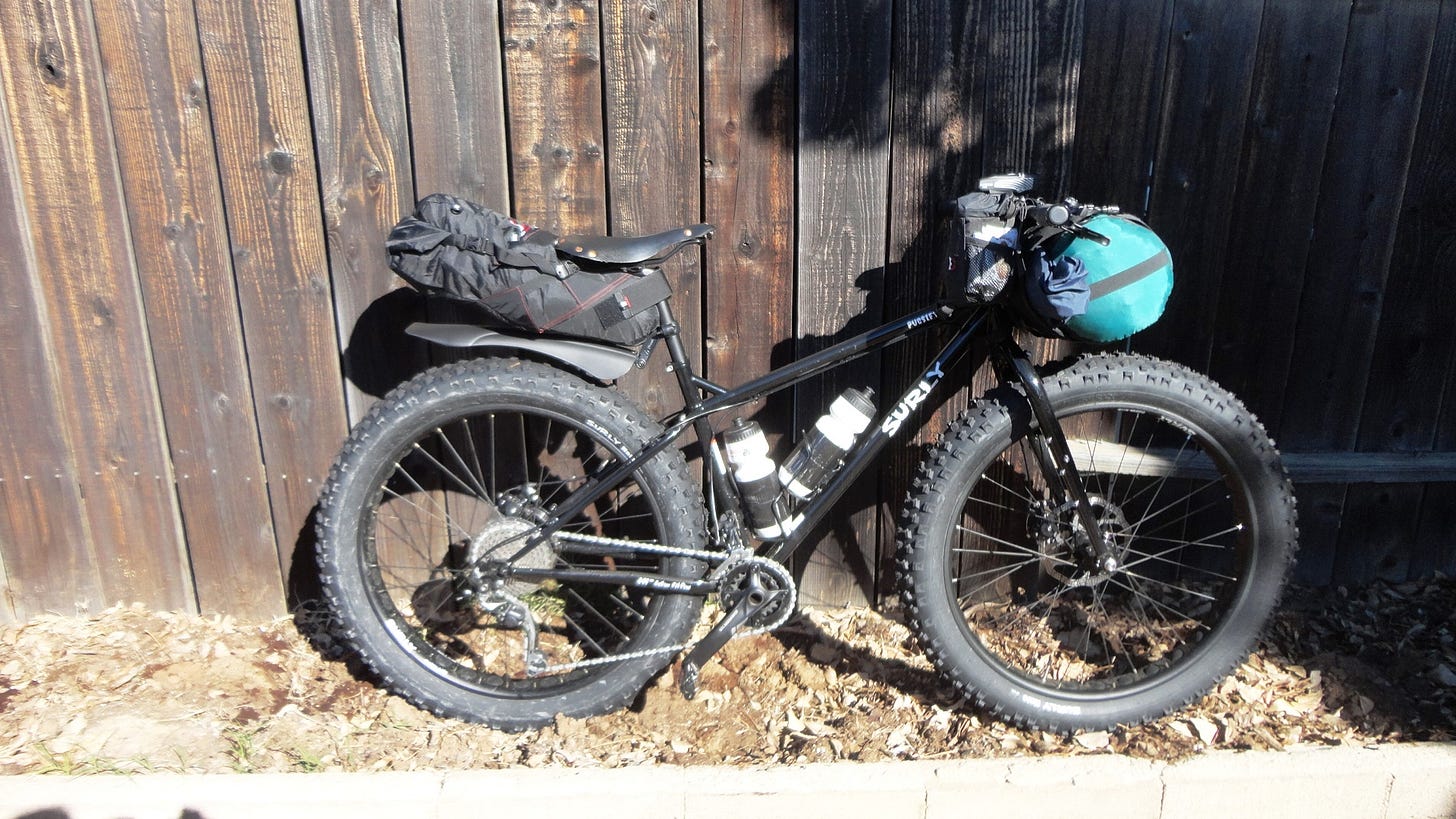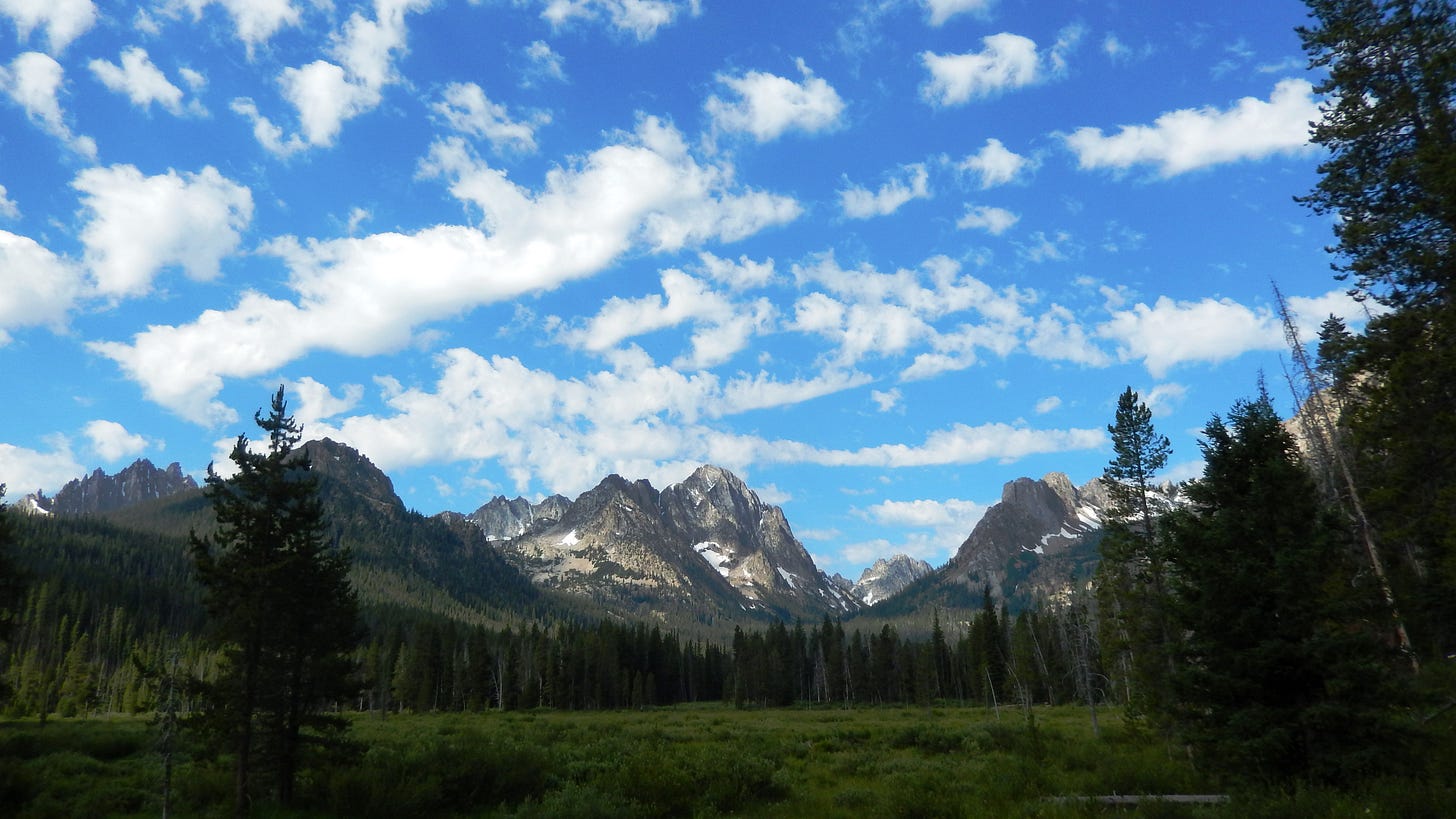Mountain Biking is a Political Act
Fully Rigid, 26 December 2020
We might not like it, but we cannot deny it any longer: Mountain biking is a political act. Every time we are on our bikes and setting out on a trail, unless you are on private land (though you can debate that, too, e.g. Jeffersonian democracy), you are engaging in politics. Whether the jurisdiction is local, state, or federal does not matter, with regard to it being a political act. Land managers and land use policy do affect our access rights to trails. This understanding is essential knowledge that all mountain bikers need to possess.
Maybe we do not like politics. Perhaps we do not want to be involved in the political process. We simply want to ride our bikes. That makes sense to me. It also makes sense that fellow mountain bikers do want to be engaged and are actively working for all of us in the political arena, one that can be difficult to navigate, sometimes very frustrating, and often times resulting in compromise. They need our support.
It does not matter who we support, meaning at what jurisdiction level. It does matter, however, if we purposely choose to not support mountain biking leadership working to maintain and ensure our right to ride our mountain bikes. They need us. We are, as policy wonks call it, a stakeholder group. Most other stakeholder groups and land managers see us as one group: mountain bikers. They do not see, nor do they all understand, that we are cross-country riders, downhillers, bike packers, racers, weekend group mountain bikers, etc. They see our bikes, period.
Fortunately, there are people who show up to meetings and teach them how to see our faces.
International Mountain Biking Association (IMBA). If you have an issue with IMBA, okay. I hear you. What I am hearing less of these days, though, is the historical knowledge among mountain bikers of what IMBA has done for all of us. To deny IMBA’s success, is to deny the history of a sport/activity we love. That, the denial, is lost history. We need not be amnesiacs of mountain biking history. Support IMBA, if you would like to.
Sustainable Trails Coalition (STC). Maybe we want to ride in wilderness areas. Maybe we don’t. Whatever the position on this issue is for any one of us, let us recognize that it likely has more nuances for us yet to understand. The debate develops the thinking. Listen first. Listen some more. Think twice. Then speak. We are only now getting started. Support STC, if you would like to.
Our local and state Mountain Biking Associations and Clubs. Here, tremendous work is done every day throughout the USA. I have the fortune of having seen it across the globe, as well. If we do not agree with some directions that our local and/or state organizations are taking, it does not mean we should not support them. That kind of thinking is self-defeating, and the “self” is us, the mountain biking community. I doubt any one of us who is not happy with our local and/or state mountain biking organization, and who then chooses to not support said organization because of that unhappiness, does not ride at least one trail that our local and/or state organization fought hard for us to be able to ride. To be succinct, let’s ask ourselves this: did I ride a trail on public land this past year? If we ride on public land, someone in our local/state mountain biking association (and possibly IMBA) has worked for our political right to do so. Support local and state mountain biking organizations, period.
It is 2021.
Not on board, yet?
I remember well and participated in the early days of riding where we were not permitted, enjoyed the rebelliousness of poaching trails, and completely understood the notion of it sometimes being better and easier to ask for forgiveness rather than for permission. For the most part, those days are over. Yes, there are outlier examples. I am aware. Anymore, however, we have reached a point in our collective time that requires working with land managers from the get-go. Indeed, that is not easy, in some locations.
Very little in life is actually easy. If we think that it is, it is probably because we have not taken the time to investigate and learn from those who have come before us and struggled in making it easier for us. It is a process. “Poco a poco,” as I learned in Central America. “Little by little,” it has become easier and we have made progress.
There is still more work to be done.
That work requires resources. Resources, in reality, mostly come down to money. Yes, that is where this is going. Local, state, national, and international mountain biking organizations need our money, as well as our skills and our thoughts. Money is time. Money is McLeods, rakes, and shovels. Money is access at the government office. Like it or not, this is how it works.
Surely, there is at least one organization that we can support in 2021. When we do, and with the understanding that we may not agree with everything they do with our money, we can still be rest assured that someone is putting mountain biking front and center on the same agenda of land managers as do the other stakeholder groups who access the same trails we do, want to, hope to, dream to.
Mountain biking is a political act. To deny that, is to deny reality. To understand it and actively engage in it, and to support our advocacy organizations, is to assist in shaping the future of mountain biking.
Fully Rigid is a Column by James Murren about Mountain Biking Issues within the Mountain Biking Community.
To continue reading Fully Rigid each month, you’ll need to purchase a subscription:
Leave a comment on Mountain Biking is a Political Act here:
More about MTBeer here: https://mtbeer.substack.com/
Share this column here:
Share MTBeer with your friends and family here:






Agree with the overall sentiment- not too sure about the “political act” stuff. (You could be using a metaphor that is going over my head.) The bottom line - in my opinion - is that mountain bike access relies on relationships. Relationships between riders and the land manager, yes; also relationships between riders and local clubs. If you ride a mountain bike, you should know and support your local club ...period. Everyone has a skill that can help the local club.
If you ride on public lands, you should know who the public land manager is and develop that relationship. As a land manager across a number of public land agencies, I have run across colleagues that run the spectrum for mountain bike access. Most are willing to support the sport, particularly when they are approached in a professional, “value-added” manner. Introducing yourself to the local land manager and offering education to them about the sport is crucial. The local club plays a crucial part in this relationship. IMBA, too, plays a role in these local relationships; although in my personal experience they have completely removed themselves from local relationship building. That isn’t good for the sport or IMBA.
We can do far more together than as individuals. This article is well written.